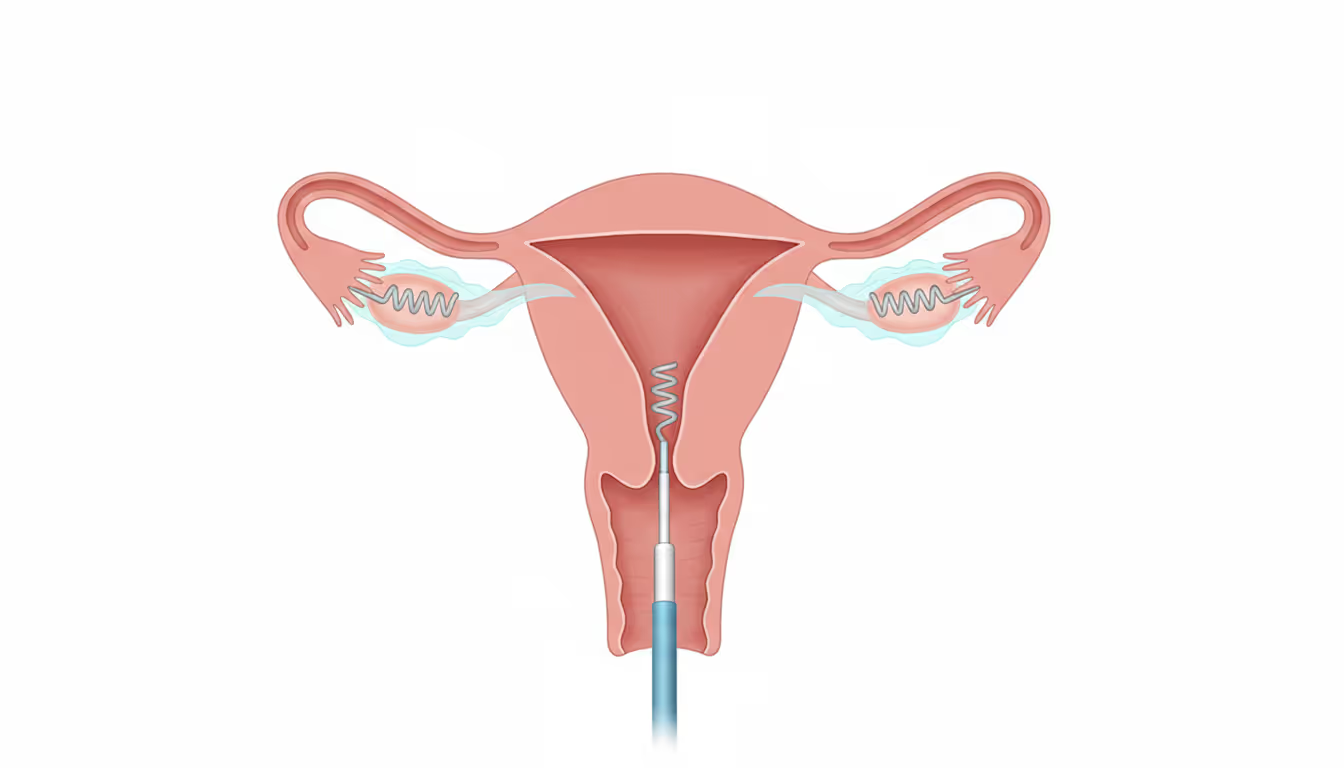
Selective Tubal Occlusion Procedure (STOP) is a method of permanent birth control that doesn't require surgery. In this procedure, a doctor places a 1.6-inch metal coil inside each of a woman's fallopian tubes using a scope that is inserted through the cervix into the uterus and then into the fallopian tube openings. Over a few months, tissue grows around the coil, creating a barrier that stops fertilized eggs from traveling from the ovaries to the uterus. The procedure takes between 15 to 30 minutes, is performed in a doctor's office, and typically only needs local anesthesia. Following the insertion of the coils, women need to rely on other birth control methods for three months until their doctor confirms through a check that the fallopian tubes are fully blocked. STOP is a permanent solution and offers an alternative to surgical sterilization, which involves incisions and anesthesia. About 6% of women who undergo STOP experience side effects, mostly due to the coils being placed incorrectly. As of November 2000, the STOP procedure was still experimental and had not received approval from the US Food and Drug Administration (FDA).




